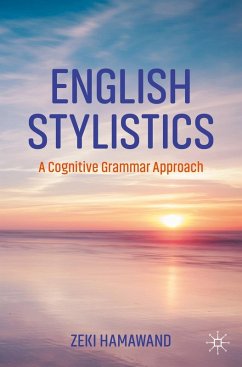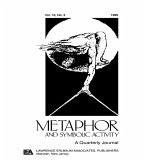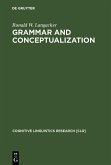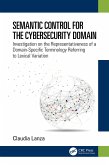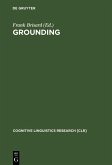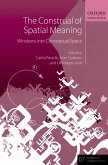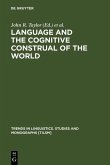"Adopting a Cognitive Grammar framework, Zeki Hamawand's textbook shows how stylistic patterns reflect fundamental properties of the human mind. In a very accessible manner that will appeal to students, teachers, and scholars alike, it explores and explains how writers use the resources of language to create meaning, and how readers interpret texts. It is recommended as a rich and systematic guide to acquaint students with the cognitive principles that account for stylistic expressions and with the techniques to conduct their own analyses." "Hamawand's textbook on English Stylistics outlines how stylistic analysis is a way of gaining insight into the meaning of texts. With its thorough presentation of underlying theory and its application to texts, both on an abstract level and also through a close reading of selected excerpts, the author establishes the significance of stylistics in reading of texts. "
-Dirk Geeraerts, Professor Emeritus of Linguistics, University of Leuven, Belgium
-Margaret E. Winters, Professor Emerita of Linguistics, Wayne State University, USA
"Hamawand's textbook on English stylistics provides an overview, history of the field and lists out several perspectives and orientations on the field of study. The theoretical component that is rooted in cognitive grammar allows the author to present the rationale behind why styles produce certain effects and helps the reader to understand language, its components and significance it holds."
-Danielle Barth, Professor, Australian National University¿This accessible textbook hinges on the central assumptions of Cognitive Linguistics and Cognitive Grammar, introducing students to the analytical tools they need to approach Stylistics, an essential area in language analysis. The author verifies the claim that alterations in style, triggered by different cognitive processes, reflect alterations in meaning, and shows how they are employed to achieve particular effects in context. The book links theory with practice, aiming both to acquaint students with the cognitive principles that account for stylistic expressions, and to provide them with the tools and techniques to conduct their own analyses. The textbook explores and explains how writers use the resources of language to create meaning, and how readers interpret texts. It will be of interest to advanced undergraduate and postgraduate students on courses in English Linguistics, as well as those working on other languages and in related areas such as Composition and Creative Writing.
¿Zeki Hamawand is Professor of English Language and Linguistics at Kirkuk University and a senior lecturer at Sulaimaniya University, Iraq. His main research interests involve the overlapping fields of morphology, lexicology, syntax and semantics, and he has published several books, textbooks and articles on these topics. His scholarly books include Atemporal Complement Clauses in English: A Cognitive Grammar Analysis (2002), Suffixal Rivalry in Adjective Formation: A Cognitive-Corpus Analysis (2007), Morpho-Lexical Alternation in Noun Formation (Palgrave Macmillan, 2008), and The Semantics of English Negative Prefixes (2009). His textbooks include Morphology in English: Word Formation in Cognitive Grammar (2011), Semantics: A Cognitive Account of Linguistic Meaning (2016), and Modern Schools of Linguistic Thought: A Crash Course (Palgrave Macmillan, 2020).
Dieser Download kann aus rechtlichen Gründen nur mit Rechnungsadresse in A, B, BG, CY, CZ, D, DK, EW, E, FIN, F, GR, HR, H, IRL, I, LT, L, LR, M, NL, PL, P, R, S, SLO, SK ausgeliefert werden.
Es gelten unsere Allgemeinen Geschäftsbedingungen: www.buecher.de/agb
Impressum
www.buecher.de ist ein Shop der
buecher.de GmbH & Co. KG
Bürgermeister-Wegele-Str. 12,
86167 Augsburg
Amtsgericht Augsburg HRA 13309
Persönlich haftender Gesellschafter: buecher.de Verwaltungs GmbH
Amtsgericht Augsburg HRB 16890
Vertretungsberechtigte:
Günter Hilger, Geschäftsführer
Christian Sailer, Geschäftsführer
Sitz der Gesellschaft:Augsburg
Ust-IdNr. DE 204210010

